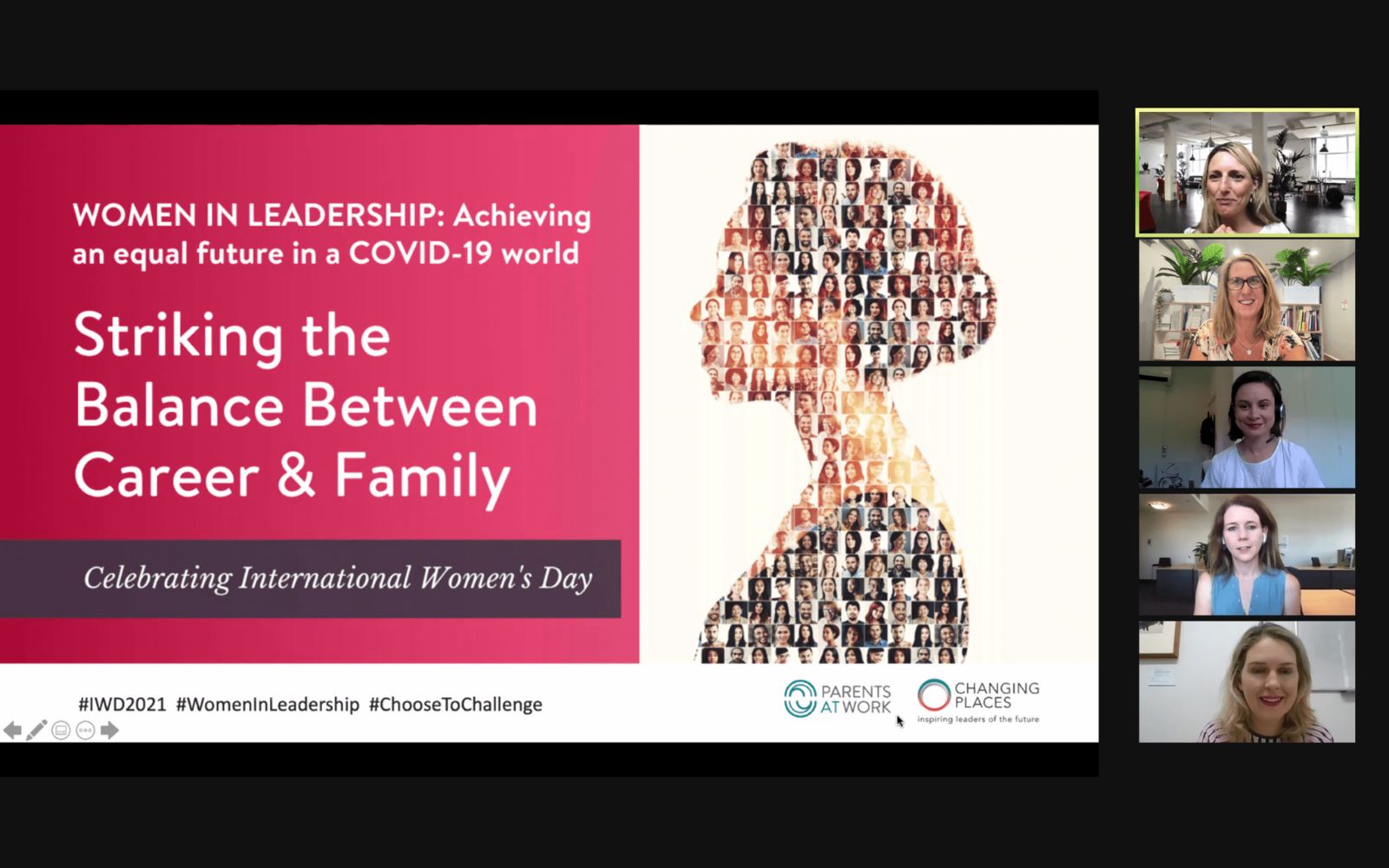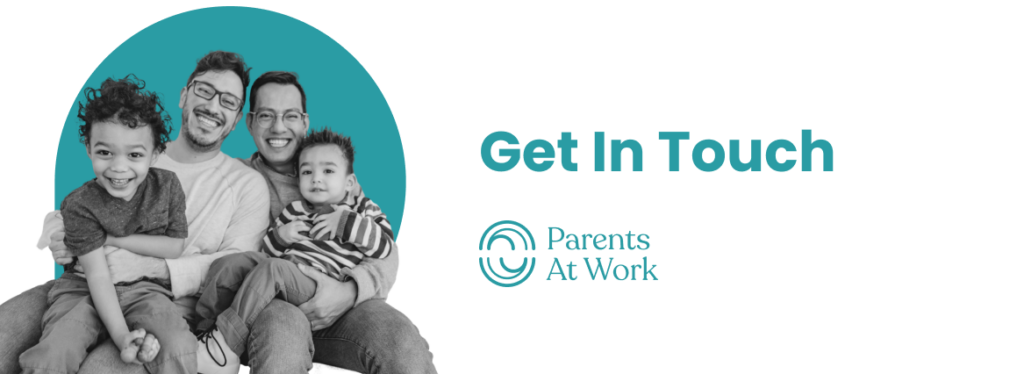Parents At Work in collaboration with Lion, The Grattan Institute and Women’s Agenda kicked of our International Women’s Day 2021 event with a focus on how we reset public and private sector policy to help families ‘strike the balance between career & family’ post pandemic.
Our CEO, Emma Walsh hosted a panel discussion with Danielle Wood, CEO of The Grattan Institute, Alicia Purtell, People & Culture Director at Lion and Angela Priestley, Founding Editor of Women’s Agenda asking the big questions:
- Could 2021 be a turning point for how we approach work + caring to help women attain leadership positions?s
- What have we learnt and gained from working and caring through Covid-19?
- Will the learnings increase women’s representation in leadership positions?
- What are governments and leading workplaces doing to drive change and progress gender equality?
The conversation centred around some of the challenges women (and men) face balancing work and care commitments and the impact this has on women’s wellbeing, access to flexibility, success in leadership roles, the gender pay gap + more.
The panel agreed that Covid-19 has brought more transparency to the ‘juggle’ that women (and their families) face and how increased access to flexible working has created more opportunities to participate.
“Covid 19 has made the burden of trying to juggle work and caring commitments visible like never before. We have a chance to tackle it at the next level to ensure it’s no longer seen as only a women’s problem to solve for”. ~ Emma Walsh
However, the panel called for more structural policy change at a government level and in workplaces to ensure we leverage the gains made during 2020 so we don’t regress to work patterns unsupportive of enabling people to thrive at work and at home.
The events of 2020 turned workplace and household routines upside down as we scrambled to respond to the pandemic. For women, it intensified the challenges that many already faced balancing their work and family life.
According to the Australian Bureau of Statistics latest results and other related research by the Australian Institute of Family Studies show that both women and men stepped up and took on more caring responsibilities during Covid-19 lockdowns.
This greater burden of care significantly impacted women’s ability to work. Compared to men, women experienced a more drastic reduction in paid work hours and were more likely to exit the workforce.
Take home points from the discussion included:
– Balancing work family tension has always been seen largely as a women’s issue, it’s clear that this is an issue everyone must engage in solving – impacting women, men, their families our wider society and economy.
– Covid has provided us with an opportunity to really look at what is needed to support women in the workplace and it will be up to employers as to how we manage this going forward.
“You can’t hide from the fact that we won’t have gender equality at work if we don’t have gender equality in society”. ~ Alicia Purtell. She went on to add that ‘letting team members work from home is just the tip of the iceberg’.
– Gender inequality runs much deeper than the workplace. It permeates throughout society and therefore we need to look at everywhere it exists in order to bring about true and lasting change.
“Policy can drive culture”. ~ Danielle Wood.
– We need to effectively work on changing policy at both the government and organisational level as it is this policy change that will lead to a change in cultural attitudes and behaviours.
– New flexible work routines have brought about more productivity, engagement, commitment and connection – and we must ensure that this pattern continues.
‘Family is an organisational concern and the real talent can be won by supporting people to be their best self ‘ ~ Alicia Purtell
– There are still a great number of women who don’t have the opportunity to work for organisations that are gender aware and family friendly.
– Flexible work must be a unified practice for all and not something that is seen as ‘accommodating’ minority groups within organisations.
What is needed going forward?
The panel discussed three key areas they felt would drive improved gender equality outcomes
- Improved equal access to parental leave enable women and men to better share the care including access to quality, affordable early childhood education / child care
- Redefining the way we view leadership, holding leaders accountable to drive gender equality outcomes in their teams and organisations.
- Improved focus on wellbeing to ensure people can be look after themselves and their loved ones to enable them to thrive at work and at home
‘We need to continue to illuminate the inequities that exist…to use data to open up the dialogue … and to remove the hurdles and obstacles for caring’ ~ Alicia Purtell.
‘We need to look to the national policy level so that every woman has the opportunity to experience gender equality in the workplace … Further to this, we need to ensure there is a focus on women’s wellbeing, particularly after seeing a rising number of cases of burnout in women.’ ~ Angela Priestley.
‘The opportunity is now. We need to continue to put pressure on our policy makers to make the changes needed’ ~ Danielle Woods.
‘We need to create a national work & family policy framework that supports workplaces to invest in policies and attitudes that focus on supporting men and women to thrive at work and at home removing systemic barriers that have long held back women’s ability to participate fully in the workplaces and men to fully participate in caring’ ~ Emma Walsh.
We’d like to thank all the participants who came along to the live event and to wish you all the very best for International Women’s Day in 2021.




